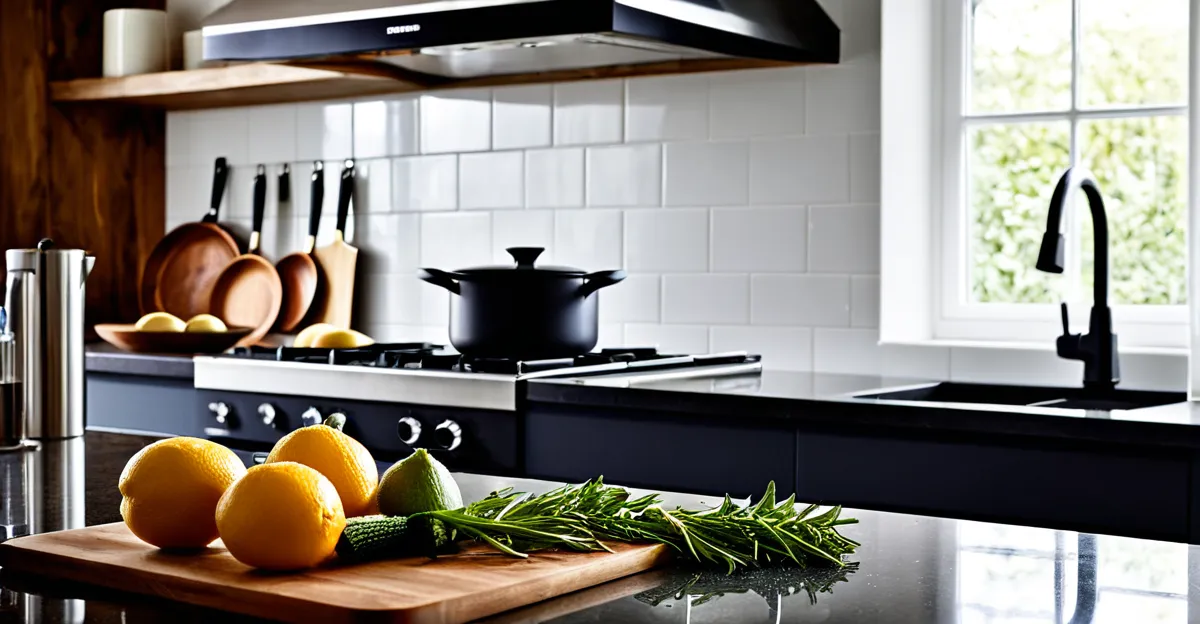Key Trends Changing the UK Kitchen Product Market
The UK kitchen trends reveal a dynamic shift driven by innovation and evolving consumer values. One significant change is the rise of smart technology in kitchen product development, making kitchens more connected and responsive to user needs. Consumers increasingly expect integrated devices that communicate seamlessly, marking a clear direction for kitchen innovation UK.
Simultaneously, sustainability has become a cornerstone of product choice. There’s a marked shift towards eco-friendly materials, such as bamboo, recycled metals, and biodegradable composites. This evolution reflects a broader commitment within the UK kitchen trends to reduce environmental impact without compromising design or functionality.
Topic to read : What UK kitchen accessories are must-haves for food enthusiasts?
Minimalism continues to influence both aesthetics and features. The emphasis on clean lines and clutter-free spaces aligns with a growing demand for multifunctional kitchen products. Such designs offer practical benefits, combining multiple uses into one appliance or tool, which addresses space constraints common in modern UK homes.
Collectively, these factors—smart connectivity, sustainable materials, and multifunctional design—are shaping the UK kitchen market. They not only reflect current consumer preferences but also set the standard for future kitchen product developments. This triad underscores how UK kitchen trends are evolving to meet the needs of contemporary lifestyles with innovation and responsibility.
Also read : What are the top UK kitchen products for amateur cooks?
Rise of Smart Appliances in UK Kitchens
Smart kitchen appliances UK have surged as a defining element within kitchen technology trends. This growth is driven by the increasing demand for Wi-Fi enabled and voice-activated kitchen products, enabling users to control devices remotely or through voice commands. Such connected home features elevate convenience and efficiency, transforming everyday cooking and cleaning into streamlined activities.
Leading smart product innovations in the UK market include smart ovens that adjust cooking times automatically, refrigerators with inventory tracking, and coffee machines programmable via smartphones. These devices not only simplify tasks but also provide energy usage insights, aligning with broader sustainability goals.
The impact of these smart kitchen appliances UK extends beyond functionality. Consumer expectations have shifted towards seamless integration across devices and personalized experiences. As a result, manufacturers are prioritizing interoperability and user-friendly interfaces in kitchen innovation UK, ensuring products adapt to evolving lifestyles. This trend reflects a larger movement within UK kitchen trends, where technology enhances not just utility but also user engagement and satisfaction.
Sustainability Drives Product Choices
Sustainability has become a critical factor influencing UK kitchen trends. Consumers are increasingly prioritizing eco-friendly kitchen UK options, seeking products made from recyclable, biodegradable, or low-impact materials. This growing preference is shaping recent kitchen product developments, pushing manufacturers towards greener production methods and materials.
Brands are responding to this demand by adopting sustainable manufacturing processes, reducing waste, and using sustainable kitchen products such as bamboo utensils, recycled glass countertops, and energy-efficient appliances. Packaging innovations that minimize plastic and promote recyclability are also becoming standard.
The shift towards eco-consciousness is more than a passing trend; it reflects a deepening consumer commitment to environmental responsibility. This is evident in kitchen innovation UK, where green kitchen trends now influence design choices and material sourcing. The integration of sustainability with functionality and aesthetics demonstrates the market’s evolution toward holistic product value.
Ultimately, the rise of sustainable kitchen products meets the dual goals of performance and environmental care, proving that eco-friendliness can coexist with modern design and usability in UK kitchens. Consumers benefit from durable, responsible products that align with their values without sacrificing convenience or style.
Minimalism and Multifunctionality Shape Design Preferences
Minimalism is increasingly defining UK kitchen style trends, highlighting a preference for clean, uncluttered spaces that enhance both aesthetics and practicality. This minimalist kitchen design approach prioritizes simplicity through streamlined cabinetry, concealed storage, and neutral palettes, creating calming environments that reduce visual noise.
Alongside this, multifunctional kitchen products are central to recent kitchen product developments. Consumers value appliances and tools that serve multiple purposes, maximizing utility in often limited kitchen spaces. Examples include ovens combining baking and steaming functions, all-in-one food processors, and modular units configurable for various tasks.
The trend toward multifunctionality also reflects evolving lifestyles where time efficiency matters. Such adaptable products facilitate cooking, cleaning, and storage, meeting demands for versatility without compromising style. This synergy between minimalism and multifunctionality represents a clear trajectory in kitchen innovation UK.
Furniture and appliances designed with these principles provide practical benefits, addressing space constraints typical in UK homes while maintaining visual harmony. Consequently, UK kitchen trends reveal a strong move toward products that are not only aesthetically pleasing but also highly functional, supporting users’ desire for convenience, adaptability, and simplicity.





